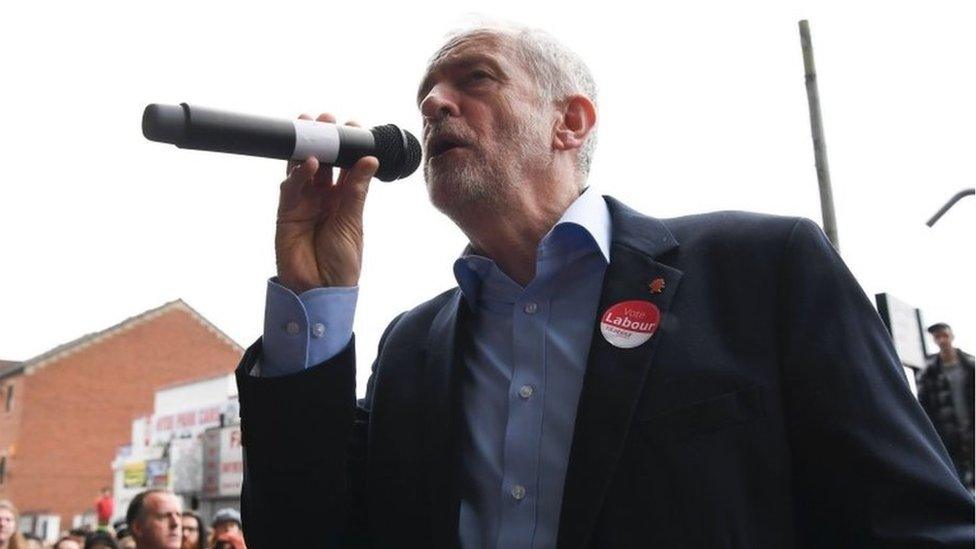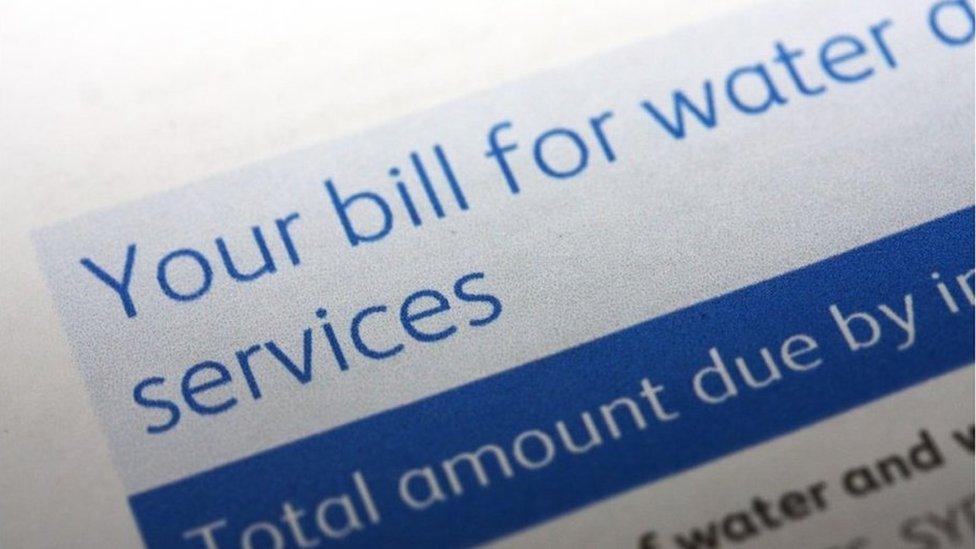General election 2017: Labour 'plans water industry nationalisation'
- Published

The Labour leader will launch his party's manifesto on Tuesday
Labour would nationalise the multi-billion pound water industry if elected, the BBC understands.
Under proposals to be outlined in its manifesto on Tuesday, Labour would create nine new public bodies to run the water and sewage system in England.
By ending the practice of paying dividends to shareholders, party sources say bills would be reduced by around £100 a year per household.
Labour will also promise 30 hours free childcare for two to four-year-olds.
Jeremy Corbyn will unveil a "radical and responsible" plan for government, pledging to change the country and govern "for the many not the few".
He will vow to reverse the austerity of recent years but also to "manage within our means".
A draft version of the document, which was leaked last week, committed a future Labour government to taking the railways and the Royal Mail back into public ownership while also nationalising the electricity distribution and transmission networks.
Labour's plans would also see the water industry, which was sold off by the government of Margaret Thatcher in 1989, return to public hands.
If elected on 8 June, it would create nine new public bodies to run the water and sewage system in England that would be publicly accountable, retaining the existing workforce.
Party sources say by ending the practice of paying dividends to shareholders and reducing interest payments on debt, bills would be reduced by around £100 a year per household - the equivalent of a cut in water bills of around 25%.

Labour says bills will fall as shareholders will not take money out of the business
The industry would be taken into public ownership either by simply buying the shares of the existing companies or by a compulsory measure whereby companies would have to be given government bonds in exchange for the shares.
A Labour source said: "Under Labour, rather than answering to its shareholders out to make a quick buck at the expense of increasing household bills and worsening service quality, utilities will be accountable to the bill payer, helping ease the burden of those struggling with the cost of living crisis."
There are currently 10 major water and sewage companies in England and Wales.
Thames Water, the largest in terms of customers and value, has a market value of about £12bn. Its shareholders include the Canadian pension fund Omers, the Kuwait Investment Authority and pension funds and institutions from across the world.
Companies listed on the stock market include Severn Trent, United Utilities and Pennon Group, which owns South West Water. They have combined market value of £17bn.
'Programme of hope'
The water industry is already effectively in public ownership in Scotland and Northern Ireland. Scottish Water is a statutory corporation accountable to the Scottish government while Northern Ireland Water became a government-owned company in 2007.
In Wales, Dŵr Cymru Welsh Water is operated for "the public benefit".
There will also be a commitment in the manifesto to provide 30 hours of free childcare for all two to four-year-olds, covering 1.3 million children.
Labour is yet to publish its full costings for these policies and will not reveal their full plans for taxation until the manifesto is published.

The manifesto will promise an increase in subsidised childcare
They have been clear that they will increase income tax for the wealthiest 5% of taxpayers earning more than £80,000 a year and increase corporation tax by 19% to 26%.
Mr Corbyn will contrast his "programme of hope" with what he will claim is Theresa May's "fear" based campaign and her "tight-fisted, mean-spirited" party.
"People want a country run for the many not the few," he will say.
"For the last seven years, our people have lived through the opposite, a Britain run for the rich, the elite and the vested interests. Labour's mission, over the next five years, is to change all that.
"It's a programme that will reverse our national priorities to put the interests of the many first. It will change our country while managing within our means. This is a programme of hope."
The Conservatives said taxpayers would have to foot the bill for Labour's unfunded spending commitments.
"Jeremy Corbyn's economic ideas are nonsensical," said Treasury minister David Gauke. "It is clear that Labour would have to raise taxes dramatically because his sums don't add up."